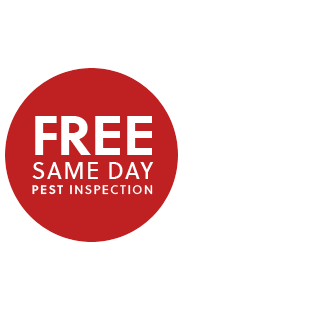Bird feeders and rodents – a bad combination
What do rodents, primarily mice, and the birds that you enjoy feeding in your backyard have in common? The answer: a shared interest in an easy meal. That can be a problem.
Placing a bird feeder in the backyard is a common practice for many people. Serious and casual bird watchers alike enjoy seeing various species of birds visit the feeders and linger in their trees or bushes.
However, there’s a drawback to enjoying this little slice of nature. Bird seed is a highly prized food source for another backyard resident – rodents. And when we say rodents, we include various species of mice, rats, squirrels, chipmunks, and voles.
As a result, backyard bird feeders can provide rodents and other pests with an easily accessible source of food, and that can spell trouble.
What attracts rodents to bird feeders
Fallen seeds: Birds often scatter and drop seeds while feeding. Rodents are opportunistic and will readily consume these fallen seeds on the ground.
Overflow and spillage: Bird feeders sometimes overflow or spill seeds onto the ground, providing an additional food source for rodents.
Easy access to food: Rodents are agile climbers and can access bird feeders, especially if they are positioned on poles, trees, or structures. If rodents can reach the feeding trays, they will consume birdseed directly.
Proximity to shelter: If bird feeders are placed near structures or vegetation where rodents find shelter, it becomes easier for them to access the food source.
Rodent prevention strategies
To minimize the attraction of rodents to bird feeders, Clark, California’s friendly pest control, rodent, mosquito, and termite expert, recommends the following:
Install baffles: Install baffles or barriers on poles to prevent rodents from climbing up to the feeders.
Choose rodent-resistant feeders: Select bird feeders designed to deter rodents. Some feeders are designed with features that make it more difficult for rodents to access birdseed.
Clean the area regularly: Clean up fallen seeds regularly to reduce the availability of food on the ground.
Maintain your landscape: Keep the areas immediately next to your home uncluttered by removing wood piles, leaves, and landscape debris, and keep bushes and trees trimmed.
Elevate feeders: Position feeders at a height and location that is less accessible to rodents.
Use seed catchers: Attach seed catchers or trays to the bottom of feeders to reduce spillage.
Store birdseed properly: Store birdseed in rodent-proof containers to prevent rodents from accessing the stored seeds.
Protect your house: Rodents do not like physical barriers, so install door sweeps and block gaps around utility openings with rodent-control fill fabric. Block and seal any holes in the foundation and around door and window frames.
If rodents are encroaching on your bird feeders, call California’s trusted rodent control and prevention expert at (800) WE-NEED-YOU (936-3339) or email us at clarkcares@clarkpest.com.
Until next time, the pest management professionals at Clark Pest Control thank you for helping to keep unwanted pests out of your home.


